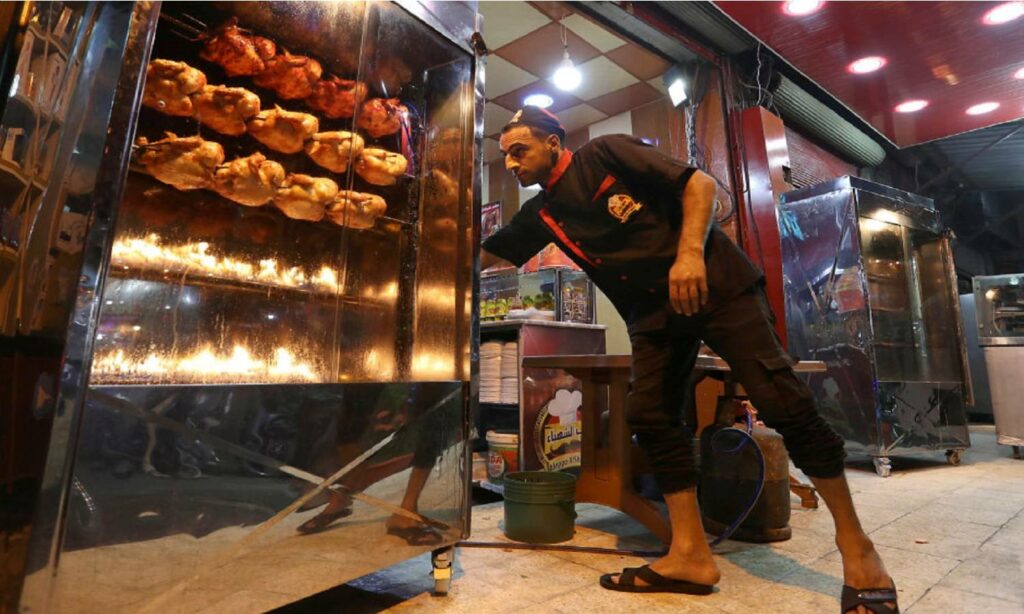The prices of fast and popular food in Damascus restaurants have repeatedly increased during the past days, despite the government’s denial of imposing any increase on traders amid threats to violators amount to closing their shops.
Mohammed, owner of a fast-food shop in the Mashrou Dummar suburb, near the capital Damascus, told Enab Baladi that the prices of meals are increasing in most restaurants on a daily basis, attributing this to several reasons.
The shop owner, who declined to give his full name for security reasons, said the high prices reflected the increased price of the basic staples in all meals included for the production of meals.
“The domestic gas cylinder reached 200,000 Syrian pounds (54 US dollars) and cooking oil, (16 liters) is about 500,000 Syrian pounds (125 US dollars),” according to the shop owner, adding that these two materials are essential in all meals.
The escalating rise in the broiler price has also played a role in the hike in the fast-food prices, which are headed by the famous “Shawarma” meal in Syria.
The selling price of one kilo of broiler reaches more than 7,500 Syrian pounds (2 US dollars), and the price of a kilo of chicken meat is about 9,900 Syrian pounds (2.5 US dollars).
Most restaurants do not abide by the pricing set by the Ministry of Internal Trade and Consumer Protection in the regime’s government because it is “too far” from the reality of costs, Mohammed said.
According to what Enab Baladi monitored, the prices of meals vary from one restaurant to another, as the price of grilled chicken ranges between 27,000 and 30,000 Syrian pounds, while the price of a Falafel sandwich reaches more than 2000 Syrian pounds.
An owner of Falafel restaurant in the traditional Sarouja market in Damascus told Enab Baladi that he raised the prices of meals, similar to the rest of the district’s restaurants, justifying this by the high fees for filling gas and obtaining oil, which is the necessary material for frying falafel.
A number of restaurant owners have resorted to closing their facilities or converting them to different stores whose costs may be much lower as a result of high costs and the taxes imposed by the Finance Ministry.
Since early March, the regime-controlled areas have been experiencing shortages in subsidized gas, gasoline, and diesel amid a hike in non-subsidized fuel prices.
The price of vegetable oil has also been raised by the government and in the black market since the beginning of the Russian war on Ukraine.
The US dollar is trading on the black market for 3,860 Syrian pounds, according to the “Syrian Pound Today” website, which specializes in exchange rates and foreign currencies, while the official price, according to the Syrian Central Bank, is 2,525 Syrian pounds.
Penalties for price violators
A source in the Internal Trade Ministry spoke last week about a plan to raise the prices of “touristic” bread and sandwiches, but it has not yet been approved.
The Director of Internal Trade and Consumer Protection in Damascus, Mohammed Ibrahim, also denied the issuance of the new prices for sandwiches and “touristic” bread on 22 March, stressing that it will be issued within a week.
Ibrahim said that any shop that sells a Falafel sandwich for more than 1,200 Syrian pounds, or sells for more than the official price for all items, will be subject to a penalty that amounts to closing his shop and will be fined.
Enab Baladi’s correspondent in Damascus Hassan Hassan contributed to this report.











